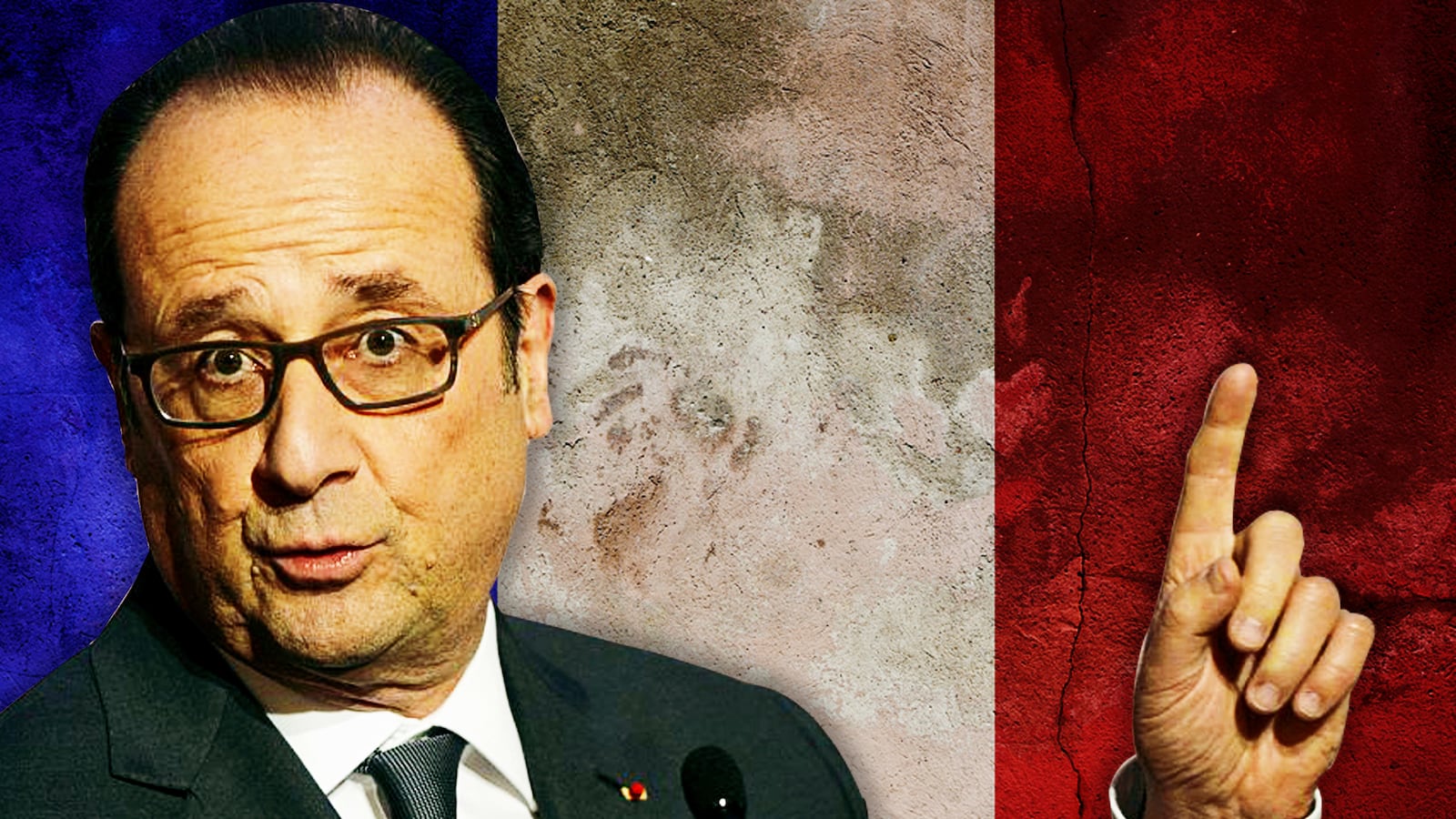PARIS — This weekend already looked to Europe’s political establishment like the make-or-break moment when the barbarians at the gates might crash through. Their onslaught has been gathering momentum, backed by the same kind of angry masses who cast ballots for Brexit in Britain and Donald Trump in the United States.
On Sunday, a constitutional referendum looks like it will be voted down in Italy, bringing with it the demise of center-left Prime Minister Matteo Renzi, while Austria may well wind up with the first far-far-right president in post-fascist Europe.
But the biggest shock came Thursday night, when French President François Hollande, a Socialist, surrendered to the lowest polls in French history—maybe the lowest in any history: an approval rating that hovers around 4 percent, almost deep enough in the tank to bring 0 percent within the margin of error.
In a nationally televised address, Hollande announced he would not seek reelection, mind you. But it was assumed that the left could be written out of the picture altogether as long as Hollande was the candidate.
Just a week ago, a source close to Hollande was telling The Daily Beast, pessimistically, that the president “thinks he was born under a lucky star; he thinks things will break his way.” Even members of his own cabinet were not sure what he was going to say in Thursday’s speech.
Now there’s going to be a Socialist Party free-for-all, with Prime Minister Manuel Valls leading the pack looking to get the nomination in a primary next month.
The other main contenders already are set: François Fillon has won the nomination of the conservative Gaullist party that now calls itself Les Républicains; and 38-year-old wunderkind Emmanuel Macron, the former economy minister (under Hollande and Valls) who has tried to stake out a position as an independent centrist.
But the person to beat remains Marine Le Pen, whose National Front has evolved from the crypto-fascist fringe party founded by her father, Jean-Marie Le Pen, into the driving force of French (and to some extent European) politics. The whole spectrum from Valls to Fillon has shifted to the right on issues like immigration and national identity. Indeed, Le Pen and her spokespeople have taken to calling her rivals mere “understudies.”
The first round of the presidential elections will be held April 23, and Le Pen is expected to win a plurality of the votes. She will then face the second-place finisher on May 7, and conventional wisdom holds that the vast majority of voters will cast their ballots against her, much as they did when her father, by a fluke, made it into the second round against incumbent Jacques Chirac in 2002.
But it’s obvious that, in this political season, conventional wisdom, like “scientific” polling, does not count for much. And Le Pen’s discourse seems to many political analysts much better adapted to widespread French anger (at globalization; at the European Union), French hopes (for a return to “traditional values” now challenged by immigration and multiculturalism), and traditional French expectations (that the state, in the end, will take care of you).
A recent CNBC interview is particularly useful as a guide to Le Pen’s opinions and, to some extent, to her political charm: She may express admiration for Trump and even Vladimir Putin, but her message is all about France all the time.
Now that Hollande has taken his name out of the running, the first key question—for the moment unanswerable—is the extent to which the people turned against the man or his administration. If the former, then there may be some hope for a fresh center-left candidate. If the latter, not a prayer.
Hollande failed to deliver on his promises to solve the problem of unemployment—the centerpiece of his campaign in 2012. The jobless rate has only begun in the last few weeks to inch almost imperceptibly downward. And yes, he failed to protect the country from horrendous terrorist attacks last year and last summer, even if more recently major plots by the so-called Islamic State have been disrupted.
But the essential problem appears to have been the public persona of France’s president. Generally described by those who know him as intelligent and quite funny, he comes across in public as stiff, dull, and indecisive.
The conservative newspaper Le Figaro minced no words, running down the list of public embarrassments, from the paparazzi pictures of pot-bellied Hollande on the back of a motor scooter sneaking around the corner from the Elysée Palace to visit his lover, to the publication this year of an incredibly ill-conceived book of interviews entitled, quite rightly, A President Ought Not to Say That.
Hollande’s term has been “nul and void,” Le Figaro concluded.
But by stepping aside, he may at least give the center and the left a chance to breathe, and to hope, as they brace for the next populist onslaught.





